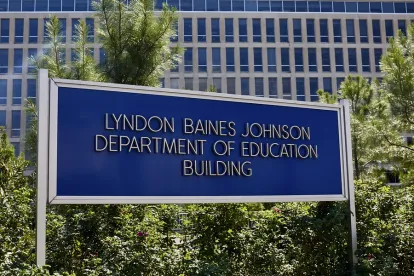Today, the U.S. Department of Education released a proposed rule to amend the regulations implementing Title IX of the Education Amendments of 1972 (Title IX). The proposed regulations outline material changes to the handling of sexual misconduct cases at educational institutions nationwide.
Some of the more noteworthy proposed changes include:
-
Requiring colleges and universities to conduct live hearings during which parties are permitted to cross-examine each other through an advisor of each party's choice. The Obama administration strongly discouraged the use of direct cross-examination by parties to sexual misconduct cases;
-
Permitting use of either a preponderance of the evidence or clear and convincing standard, but allowing schools to apply the preponderance standard only if other conduct violations with the same maximum sanction are resolved under a preponderance standard. Schools would be required to apply the same standard to complaints against students and employees, including faculty. During the Obama administration, schools were required to use the preponderance of the evidence standard to resolve Title IX matters;
-
Applying the "deliberate indifference" standard to the Office of Civil Rights' (OCR) review of schools' obligations to respond to sexual harassment. The OCR previously viewed the deliberate indifference standard as applicable to private civil actions for money damages under Title IX and, instead, reviewed whether schools responded promptly and effectively to sexual harassment in educational programs and activities;
-
Providing greater flexibility in the use of informal resolutions and mediation to resolve claims of sexual harassment. OCR previously did not permit mediation of sexual assault cases, even on a voluntary basis; and
-
Requiring schools to respond to sexual harassment only where the school has "actual knowledge" of conduct that is "so severe, pervasive, and objectively offensive" that it denies access to an educational program or activity, or where it has received reports from multiple complainants against a respondent. OCR previously also reviewed whether schools responded appropriately to sexual harassment of which they had constructive knowledge, such as through reports made to responsible employees.
The proposed regulations also adopt some provisions of the Clery Act, such as requiring the provision of simultaneous notices to parties, notice of all possible sanctions, and adoption of the advisor-of-choice requirement.



 />i
/>i

